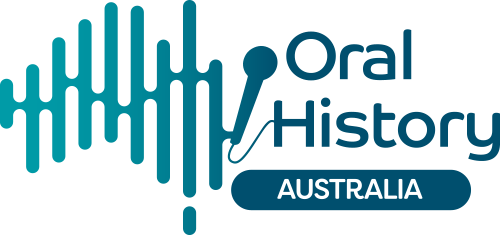[et_pb_section fb_built=”1″ admin_label=”Conference 2022 Header” _builder_version=”4.11.1″ background_color=”#f2f2f2″ global_module=”2047″ saved_tabs=”all” global_colors_info=”{}”][et_pb_row column_structure=”3_5,2_5″ _builder_version=”4.16″ background_color=”rgba(0,0,0,0)” global_colors_info=”{}”][et_pb_column type=”3_5″ _builder_version=”4.16″ global_colors_info=”{}”][et_pb_text admin_label=”Page heading” _builder_version=”4.17.4″ global_colors_info=”{}”]
OHA Biennial Conference 2022
Oral History in Troubling Times: Opportunities & Challenges
[/et_pb_text][/et_pb_column][et_pb_column type=”2_5″ _builder_version=”4.16″ global_colors_info=”{}”][et_pb_image src=”https://oralhistoryaustralia.org.au/wp-content/uploads/Logo-141-kb.png” alt=”Oral History Tasmania logo” title_text=”Logo OH Tasmania” admin_label=”OH Tas logo” _builder_version=”4.16″ _module_preset=”default” global_colors_info=”{}”][/et_pb_image][/et_pb_column][/et_pb_row][/et_pb_section][et_pb_section fb_built=”1″ _builder_version=”4.16″ global_colors_info=”{}”][et_pb_row column_structure=”1_3,1_3,1_3″ _builder_version=”4.16″ global_colors_info=”{}”][et_pb_column type=”1_3″ _builder_version=”4.16″ global_colors_info=”{}”][et_pb_text admin_label=”Overview text” _builder_version=”4.16″ _module_preset=”default” global_colors_info=”{}”]
Presenters
Our conference features a broad range of presenters from throughout Australia and overseas. Profiles of some of our most prominent presenters are featured here. We will also be posting conference abstracts to this page when available.[/et_pb_text][et_pb_blurb title=”Quick links – Conference 2022″ use_icon=”on” font_icon=”||divi||400″ icon_color=”#004F6E” icon_placement=”left” image_icon_width=”30px” admin_label=”2022 Conference quick links” _builder_version=”4.17.4″ _module_preset=”default” header_level=”h2″ header_text_color=”#004F6E” custom_padding=”20px|20px|20px|20px|false|false” border_width_all=”2px” border_color_all=”#004F6E” border_color_all_image=”#004F6E” box_shadow_style=”preset2″ icon_font_size=”30px” global_module=”2945″ saved_tabs=”all” global_colors_info=”{}”]
- Home page
- Location & accommodation
- Post-conference tours
- Presenters
- Program
- Registration – Eventbrite
[/et_pb_blurb][et_pb_button button_url=”https://oralhistoryaustralia.org.au/wp-content/uploads/2022-conference-program-FINAL.pdf” url_new_window=”on” button_text=”Download the program as at Sep 2022 (PDF)” admin_label=”Program download button” _builder_version=”4.18.0″ custom_button=”on” button_bg_color=”#004f6e” button_border_width=”2px” button_border_color=”#f2f2f2″ button_icon=”||divi||400″ button_icon_placement=”left” button_on_hover=”off” global_module=”4027″ saved_tabs=”all” global_colors_info=”{}”][/et_pb_button][/et_pb_column][et_pb_column type=”1_3″ _builder_version=”4.16″ global_colors_info=”{}”][et_pb_text admin_label=”Mark Cave” _builder_version=”4.16″ _module_preset=”default” background_color=”#F2F2F2″ custom_padding=”20px|20px|20px|20px|false|false” border_width_all=”2px” border_color_all=”#009BA7″ box_shadow_style=”preset2″ global_colors_info=”{}”]
Mark Cave
Keynote speaker

[/et_pb_text][/et_pb_column][et_pb_column type=”1_3″ _builder_version=”4.16″ global_colors_info=”{}”][et_pb_text admin_label=”Kim Mahood” _builder_version=”4.17.4″ _module_preset=”default” background_color=”#F2F2F2″ custom_padding=”20px|20px|20px|20px|false|false” border_width_all=”2px” border_color_all=”#009BA7″ box_shadow_style=”preset2″ global_colors_info=”{}”]
Kim Mahood
Plenary presenter
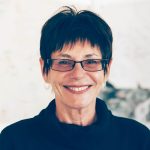
Kim Mahood is a writer, visual artist and consultant. She is the author of Craft for a Dry Lake (Random House 2000), and Position Doubtful – Mapping Landscape and Memory (Scribe 2016). Her essays have been published in art, literary and public affairs journals, and her artwork is held in state, territory and regional collections.
She has developed cross-cultural mapping projects with Aboriginal groups in Perth, the Kimberley, Central Australia, remote South Australia and western NSW. Her mapping work is designed to foster communication and understanding between traditional custodians of country and the non-Indigenous stakeholders with an interest in the same country.
[/et_pb_text][/et_pb_column][/et_pb_row][et_pb_row _builder_version=”4.16″ _module_preset=”default” custom_padding=”20px|20px|20px|20px|false|false” border_width_all=”4px” border_color_all=”#FFFFFF” box_shadow_style=”preset2″ global_colors_info=”{}”][et_pb_column type=”4_4″ _builder_version=”4.16″ _module_preset=”default” global_colors_info=”{}”][et_pb_text _builder_version=”4.17.4″ _module_preset=”default” global_colors_info=”{}”]
Pre-conference workshops
[/et_pb_text][et_pb_tabs admin_label=”Workshop presenter tabs” _builder_version=”4.17.4″ _module_preset=”default” global_colors_info=”{}”][et_pb_tab title=”Jill Cassidy” _builder_version=”4.16″ _module_preset=”default” global_colors_info=”{}”]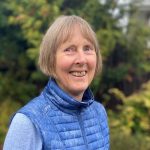
Introducing oral history
Jill Cassidy is an Honorary Research Associate with the Queen Victoria Museum & Art Gallery. She is President of Oral History Tasmania and Vice President of Oral History Australia.[/et_pb_tab][et_pb_tab title=”Alistair Thomson” _builder_version=”4.16″ _module_preset=”default” global_colors_info=”{}”]
Interpreting memories
Alistair Thomson is Professor of History at Monash University and President of Oral History Australia.[/et_pb_tab][et_pb_tab title=”Hamish Sewell” _builder_version=”4.16″ _module_preset=”default” global_colors_info=”{}”]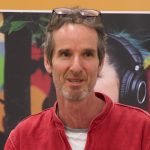
Producing mobile–based audio walks from oral histories
Hamish Sewell is a former RN producer and the founder of the Soundtrails application. [/et_pb_tab][et_pb_tab title=”Linda Hunt” _builder_version=”4.16″ _module_preset=”default” global_colors_info=”{}”]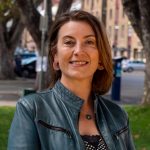
Interviewing and the art of asking questions
Linda Hunt is a lecturer in media and communication at the University of Tasmania. Before joining UTAS, Linda was a broadcast journalist for ABC News and has reported, produced and presented news on radio and television.[/et_pb_tab][et_pb_tab title=”Greg Appel” _builder_version=”4.17.4″ _module_preset=”default” global_colors_info=”{}”]

Podcasting oral history
Greg Appel is a producer and director of social history documentaries for TV, radio and online. His diverse documentary work includes the ground-breaking series Long Way to the Top (ABC TV 2001) about Australian rock music and the popular radio series Greetings from…the Streets of Australia for ABC Radio National. He has won awards in Australia and South Africa. Participants will require a laptop or tablet, plus a mobile device or external microphone for recording.
[/et_pb_tab][/et_pb_tabs][/et_pb_column][/et_pb_row][et_pb_row _builder_version=”4.16″ _module_preset=”default” global_colors_info=”{}”][et_pb_column type=”4_4″ _builder_version=”4.16″ _module_preset=”default” global_colors_info=”{}”][et_pb_text _builder_version=”4.16″ _module_preset=”default” global_colors_info=”{}”]
Palawa and Pakana presenters, final plenary
[/et_pb_text][/et_pb_column][/et_pb_row][et_pb_row column_structure=”1_3,1_3,1_3″ _builder_version=”4.16″ _module_preset=”default” global_colors_info=”{}”][et_pb_column type=”1_3″ _builder_version=”4.16″ _module_preset=”default” global_colors_info=”{}”][et_pb_team_member name=” Julie Gough” image_url=”https://oralhistoryaustralia.org.au/wp-content/uploads/Dr-Julie-Gough-1-300×201.jpg” admin_label=”Julie Gough” _builder_version=”4.16″ _module_preset=”default” background_color=”#F2F2F2″ custom_padding=”20px|20px|20px|20px|false|false” border_width_all=”2px” border_color_all=”#009BA7″ box_shadow_style=”preset2″ global_colors_info=”{}”]Dr Julie Gough is an artist and writer, and a curator at the Tasmanian Museum and Art Gallery. Her Briggs-Johnson family have lived in the Latrobe region of North-West Tasmania since the 1840s, with Tebrikunna their Traditional Country in far north-eastern Tasmania. Gough’s research and art process involves uncovering and re-presenting often conflicting and subsumed histories, many referring to her family’s experiences as Tasmanian Aboriginal people. Gough completed a PhD, University of Tasmania (2001) and MA, Goldsmiths College, University of London (1998). Since 1994 Julie has exhibited in more than 130 exhibitions and her art is held in most state and national collections.[/et_pb_team_member][/et_pb_column][et_pb_column type=”1_3″ _builder_version=”4.16″ _module_preset=”default” global_colors_info=”{}”][et_pb_team_member name=”Theresa Sainty” image_url=”https://oralhistoryaustralia.org.au/wp-content/uploads/Theresa_Sainty-2-300×201.jpg” admin_label=”Theresa Sainty” _builder_version=”4.18.0″ _module_preset=”default” background_color=”#F2F2F2″ custom_padding=”20px|20px|20px|20px|false|false” border_width_all=”2px” border_color_all=”#009BA7″ box_shadow_style=”preset2″ global_colors_info=”{}”]
Theresa Sainty is a Pakana woman from the north-east of Tasmania. She has worked extensively with the Tasmanian Department of Aboriginal Education Services where she co-developed and provided Aboriginal Cultural Awareness training and produced a number of curricula. She is also an Aboriginal Linguistic Consultant with the palawa kani Language Program, and is a Senior Indigenous Scholar at the University of Tasmania.
[/et_pb_team_member][/et_pb_column][et_pb_column type=”1_3″ _builder_version=”4.16″ _module_preset=”default” global_colors_info=”{}”][et_pb_team_member name=”Zoe Rimmer” image_url=”https://oralhistoryaustralia.org.au/wp-content/uploads/Zoe-Rimmer-by-Jillian-Mundy600w-scaled.jpg” admin_label=”Zoe Rimmer” _builder_version=”4.17.4″ _module_preset=”default” background_color=”#F2F2F2″ custom_padding=”20px|20px|20px|20px|false|false” border_width_all=”2px” border_color_all=”#009BA7″ box_shadow_style=”preset2″ global_colors_info=”{}”]
Zoe Rimmer is a Pakana (Tasmanian Aboriginal) curator, researcher and writer. Her PhD candidature at the University of Tasmania follows on from her work in the museum sector associated with repatriation, cultural revival and developing First Peoples museology. Zoe has recently started in the position of Indigenous Fellow, Academic Development, History and Heritage at UTAS.
[/et_pb_team_member][/et_pb_column][/et_pb_row][/et_pb_section]
